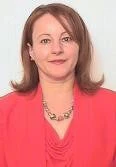 Photo de femmes rurales travaillant dans l’agriculture. Crédit: L’entreprise Ahmini
Photo de femmes rurales travaillant dans l’agriculture. Crédit: L’entreprise Ahmini
When the coronavirus (COVID-19) pandemic hit his country, Tunisia, Meher Khelifi knew exactly what needed to be done to save lives. After all, he has already developed a solution to save the lives of thousands of rural women by enrolling them in the social security system and enabling them, for the first time, to gain access to the health care to which they and their families are entitled.
After Meher’s late mom, Fatouma, passed away from a disease she could not afford to treat because she had to choose between her own health and her children’s education, Meher’s only goal was to ensure that no other rural women would ever have to make this sacrifice again. The World Bank’s Empower Her program was the right opportunity for Meher to pursue his goal. After succeeding in a nation-wide youth competition and completing a series of intensive training in entrepreneurship, financial management, leadership, and other skill-building sessions organized by the World Bank, Meher launched his Empower Her technological solution called “Ahmini” (meaning “Protect Me”). Today, and less than a year later, about 23,000 rural women working in the agriculture sector are registered with Ahmini. The target is to reach 500,000 rural women in the next few years.
Meher has innovated once again to address the negative impact of the pandemic on rural women, who are mostly affected by job losses and food price increases as well as shortages of essential products such as flour and semoulina[i], and who are vulnerable to health risks. He is using modern technology and creating “Ahmini Light” with other partners. This application has come to the rescue of rural women, who no longer had any source of livelihood. It creates a connection that links rural women with associations and citizens to receive necessary food supplies from the nearest point of sale with dignity and at no cost.
| |
|
Photo: Ahmini-Light application Photo: COVID-19 tracking application
Meher’s tech solutions did not stop there: he has also managed to create ways to protect rural women through awareness audio-recordings or direct calls to teach them about the preventive measures needed to save themselves and their households from contracting COVID-19. Given his tech-savviness, he was requested to create an app that tracks quarantined citizens returning from overseas to raise their awareness about the required measures.
The interior regions of Tunisia are rich in human capital and tech-savvy youth like Meher. Investing in these young people is investing in the society as a whole.
Note: Ahmini’s work on easing access to social security and social assistance fits within a broader World Bank Group agenda supported by the First Resilience and Recovery Development Policy Financing (DPF, US$175 million), submitted for the Board of Executive Directors’ approval on June 12, 2020. Under this DPF, reform actions are expected to promote a sound and rapid development of digital payment services in Tunisia. Government to person (G2P) digital payments are expected to increase, particularly in social security and social services.
_________________________________________________________________________________________
[i] Based on a recent survey conducted jointly by the National Institute of Statistics (INS) and the World Bank (April-May 2020), this COVID-19 pandemic has a negative impact on Tunisian households in terms of income and consumption, in particular among the poorest. Wealthier households are less affected.




Join the Conversation